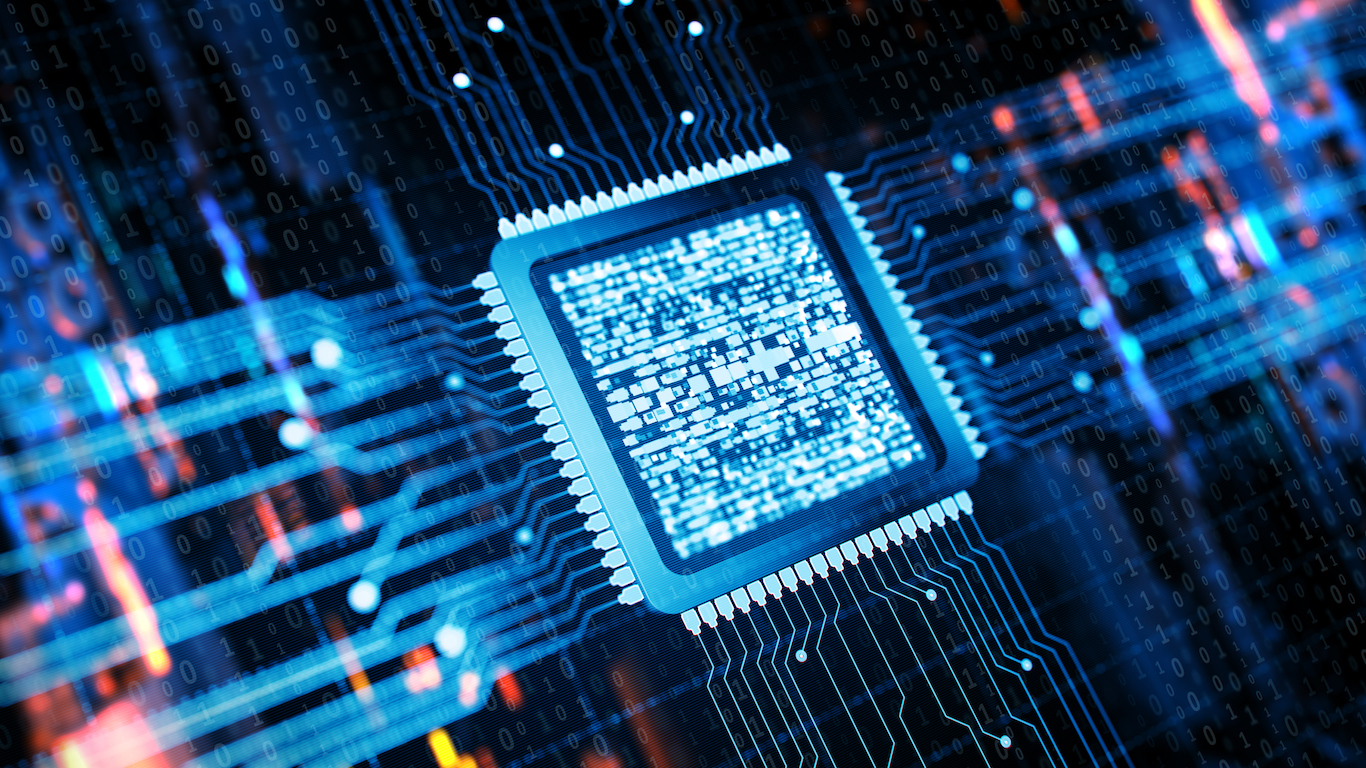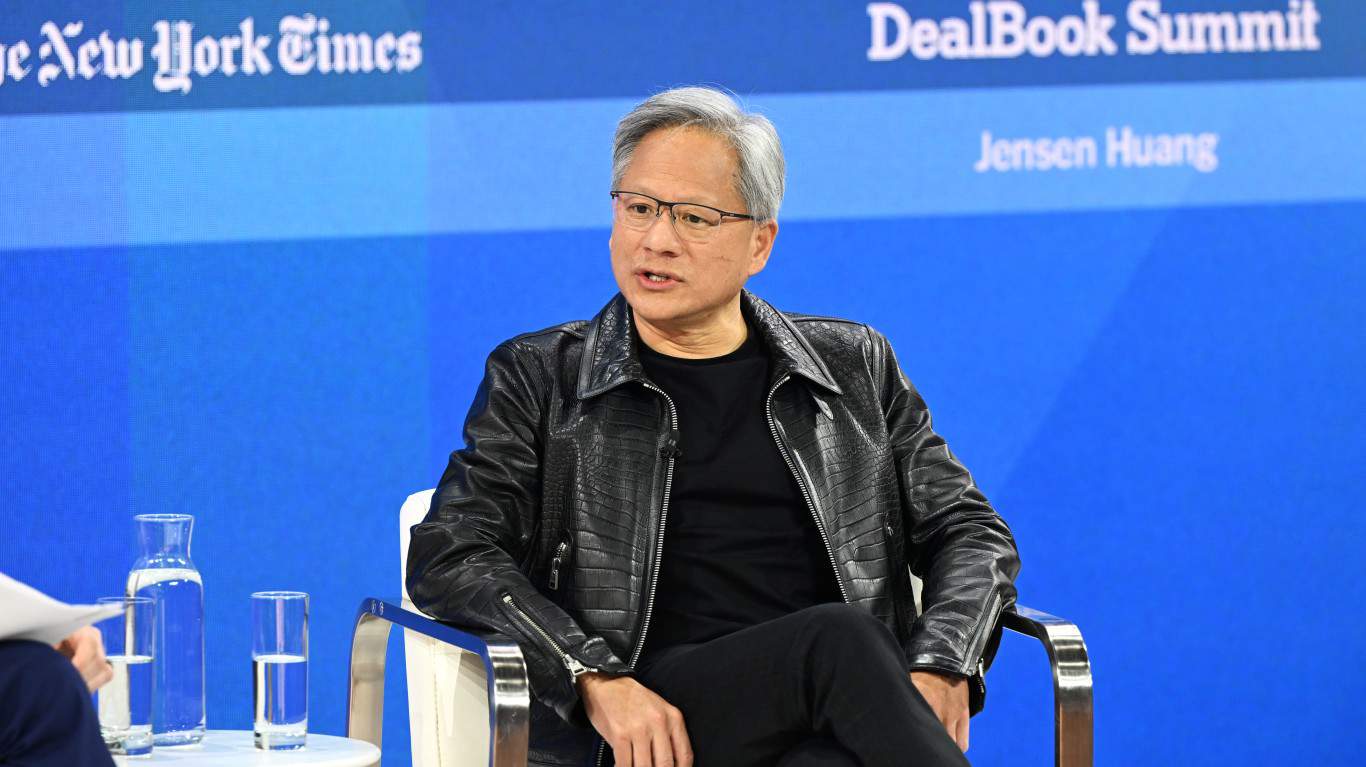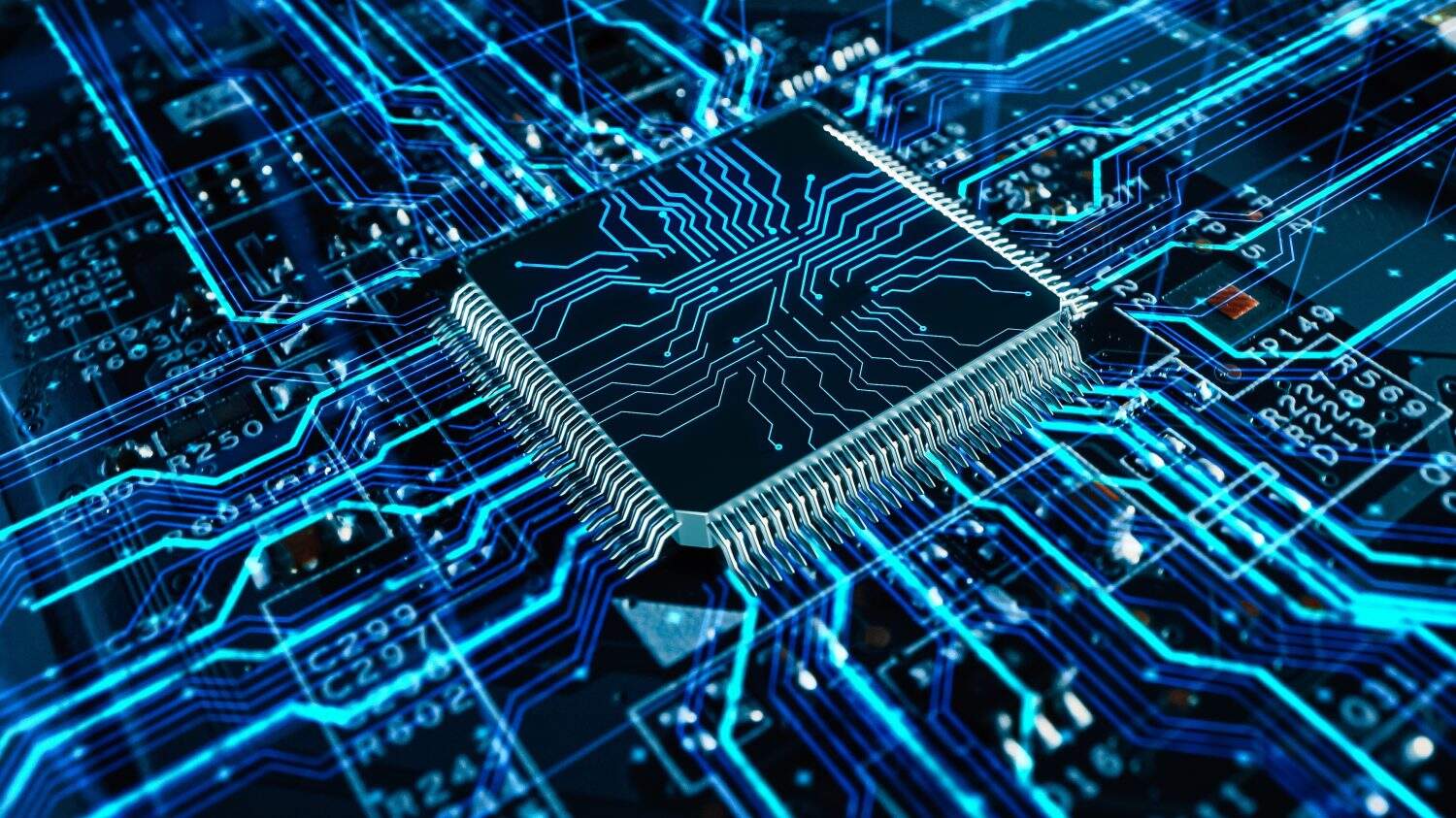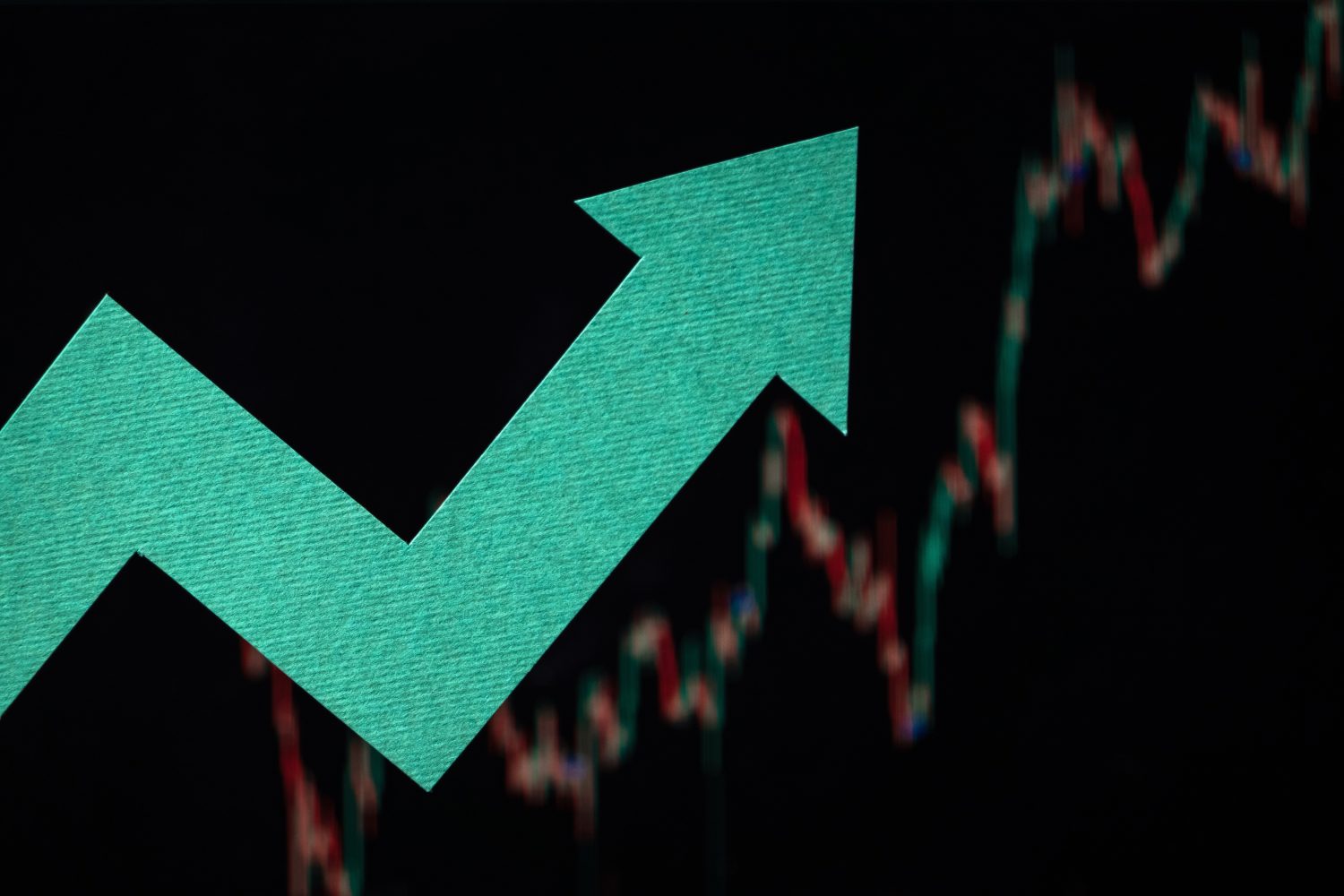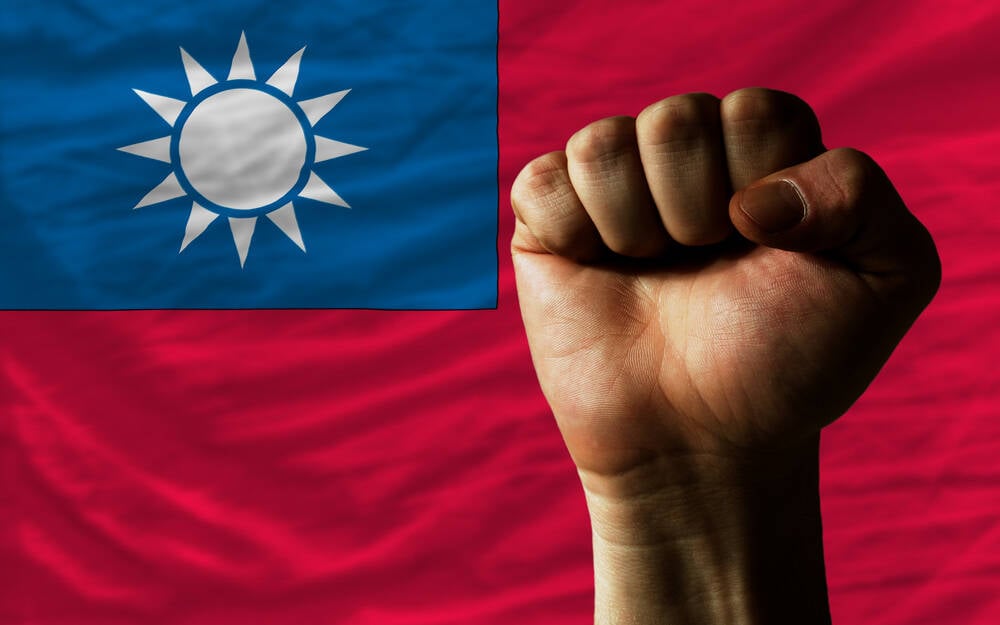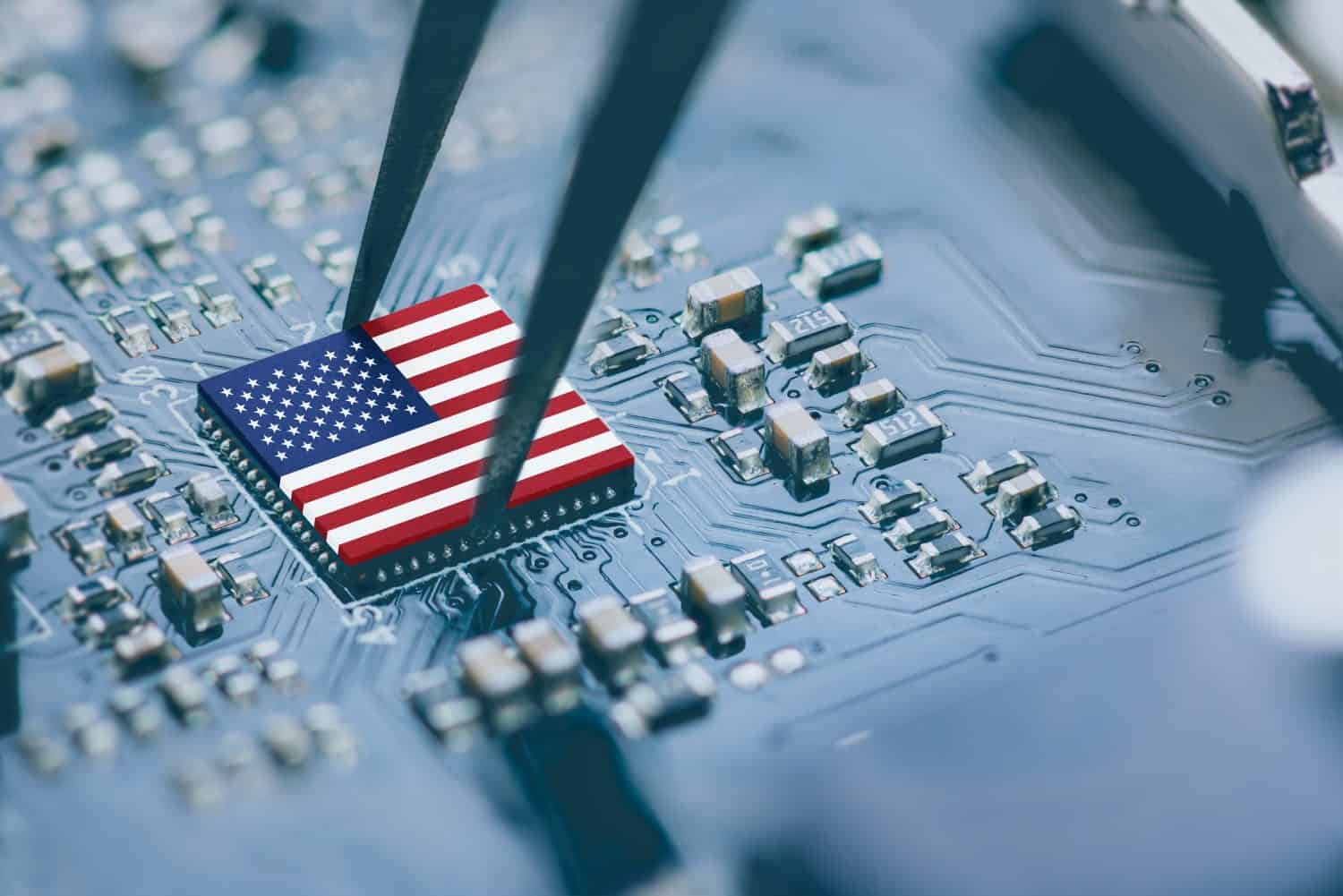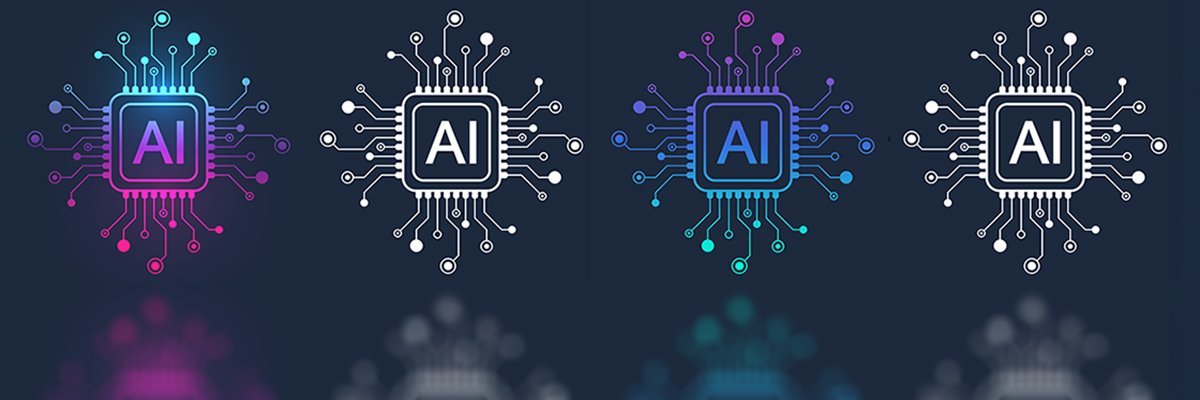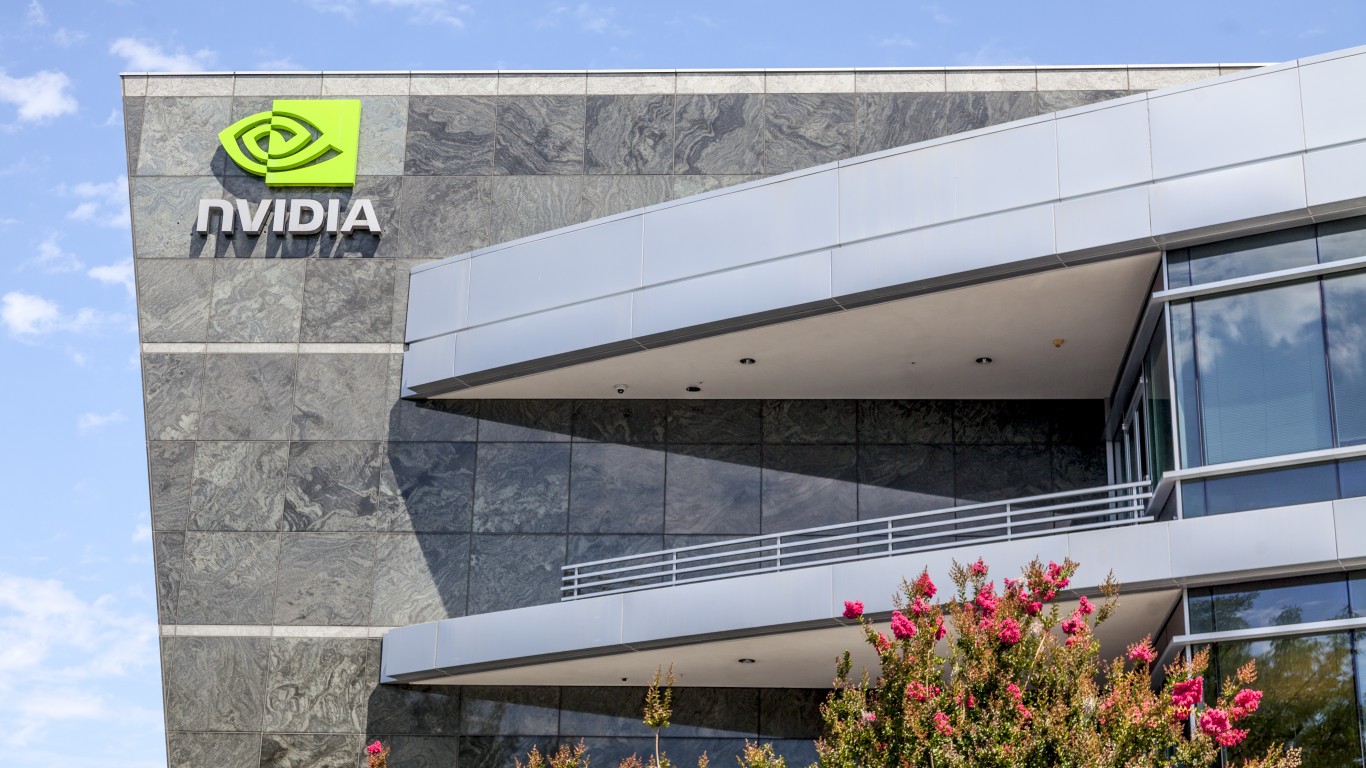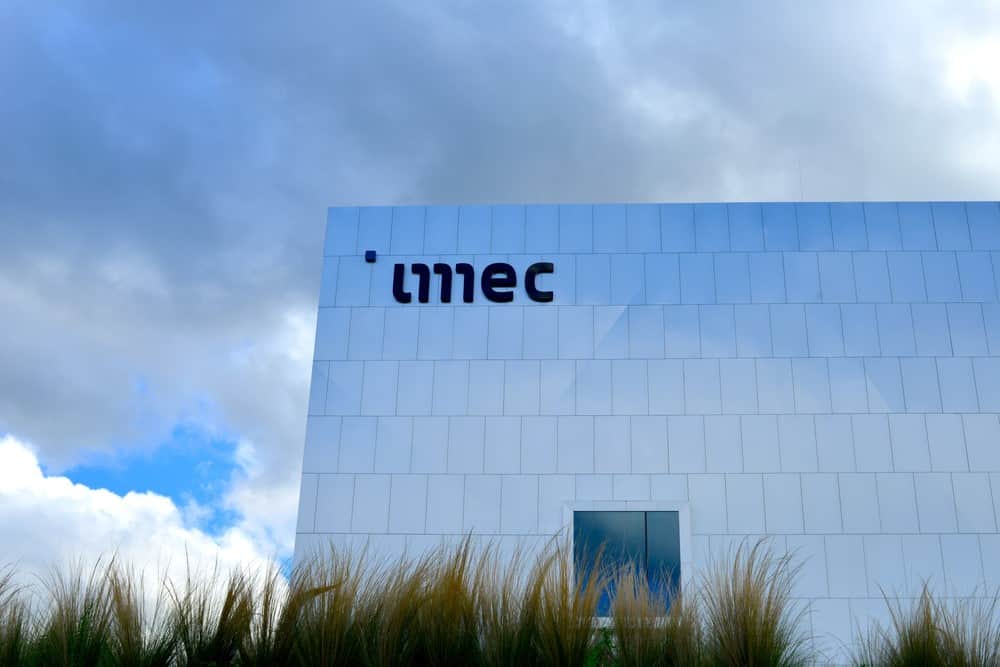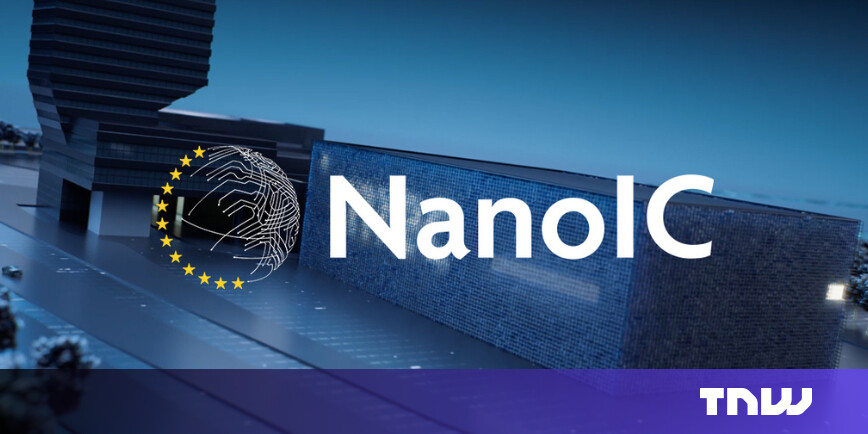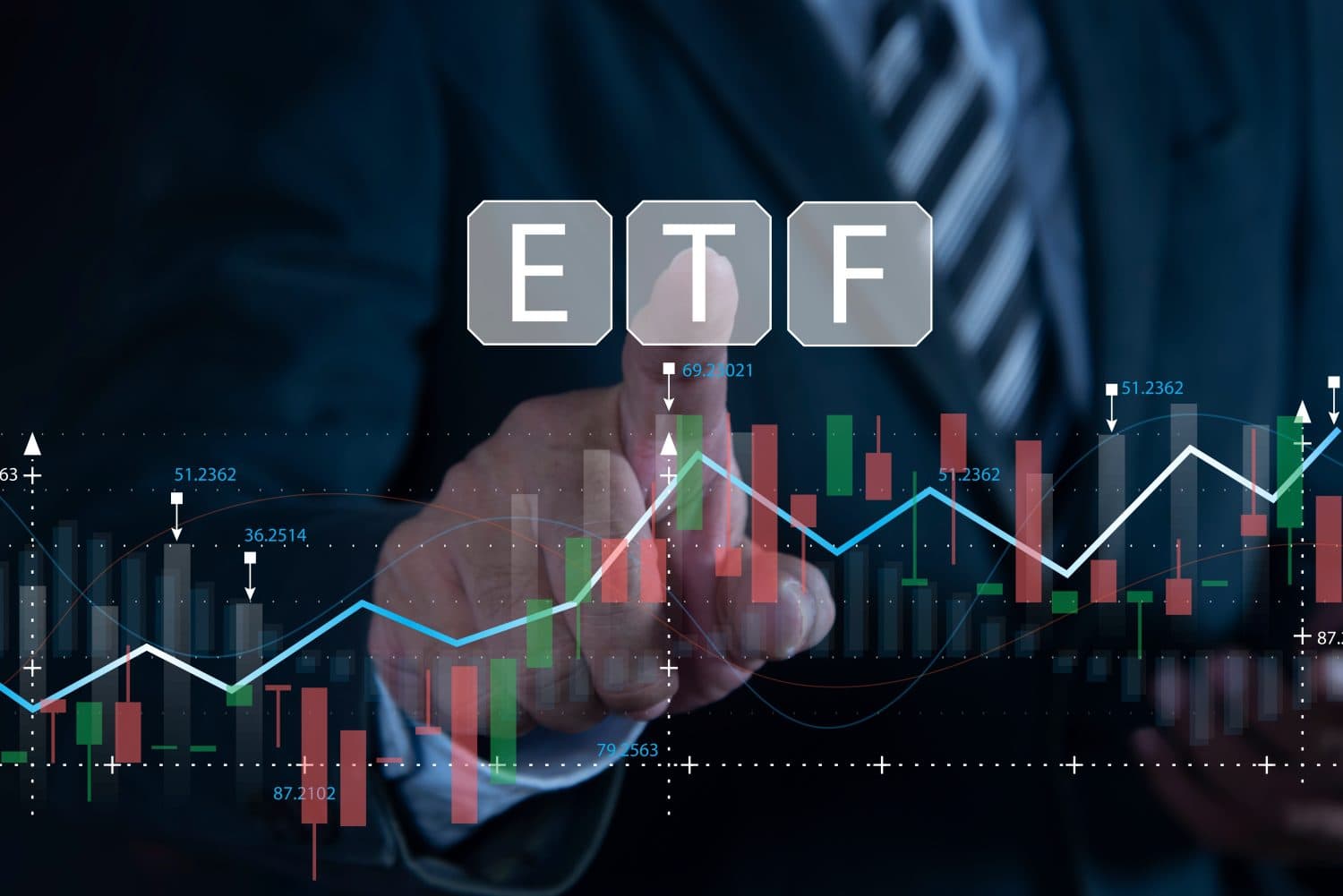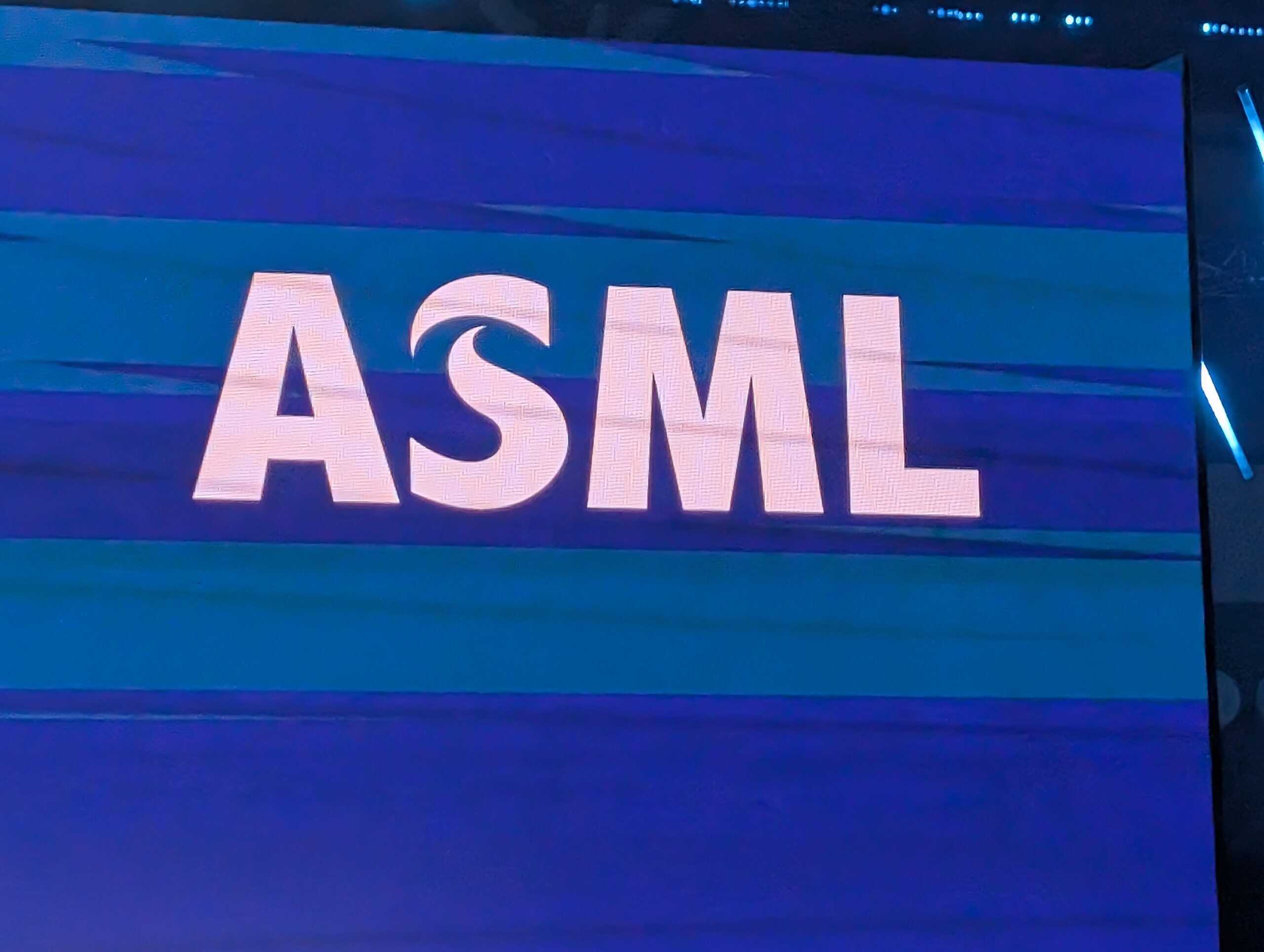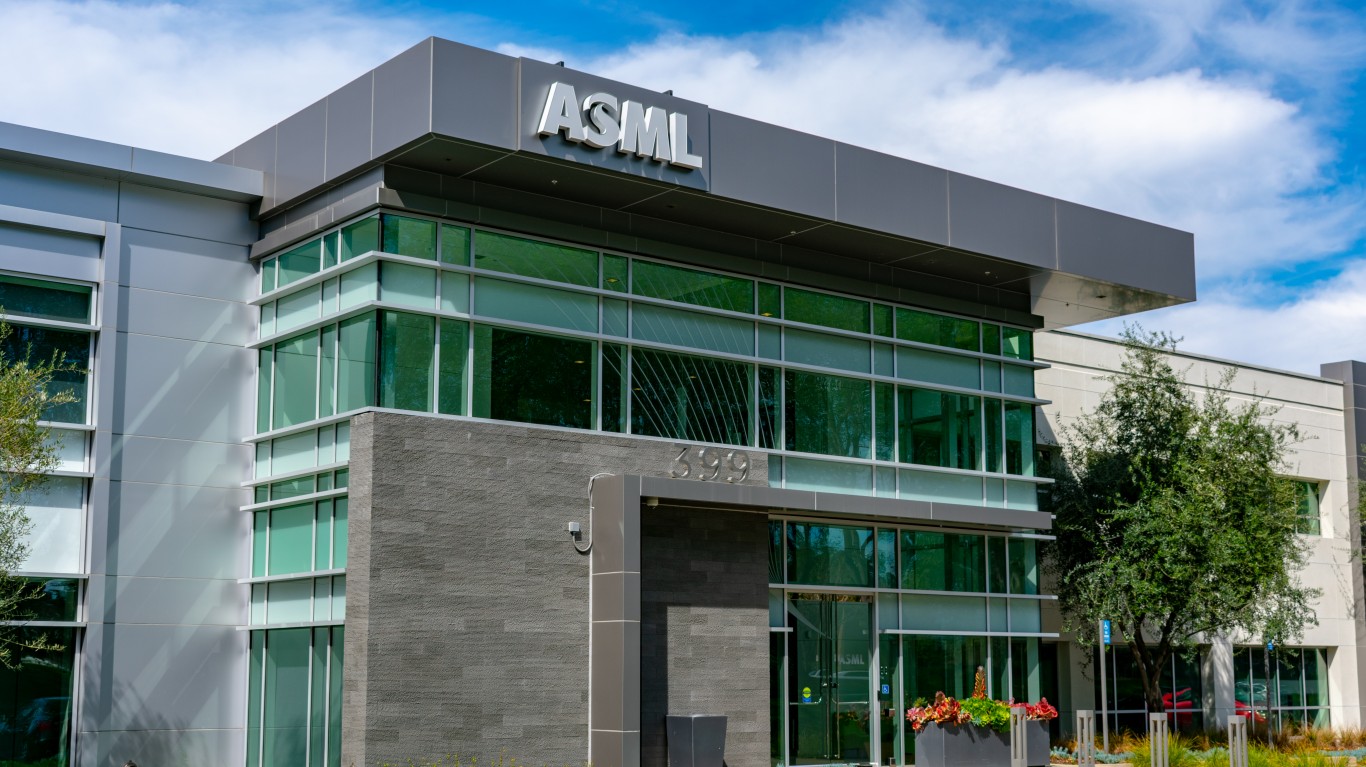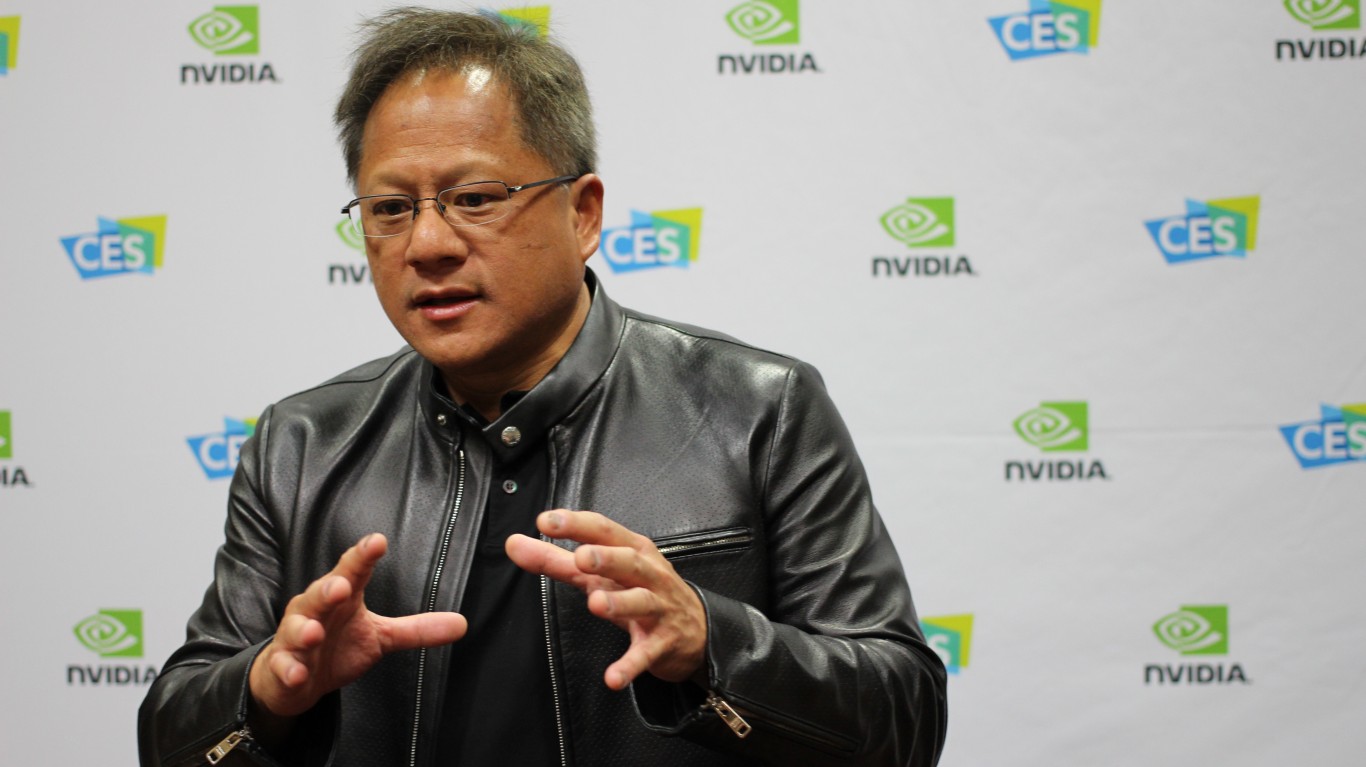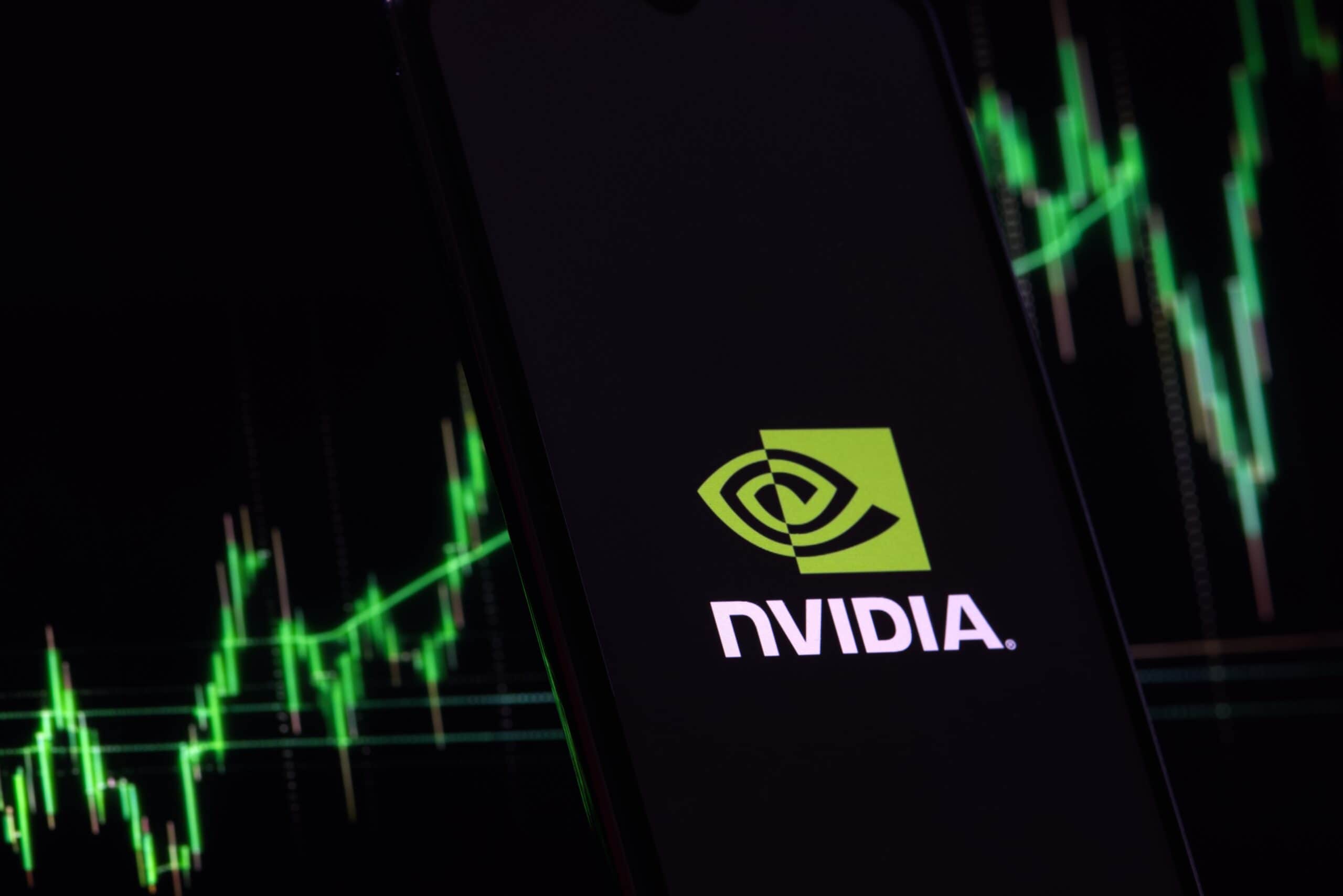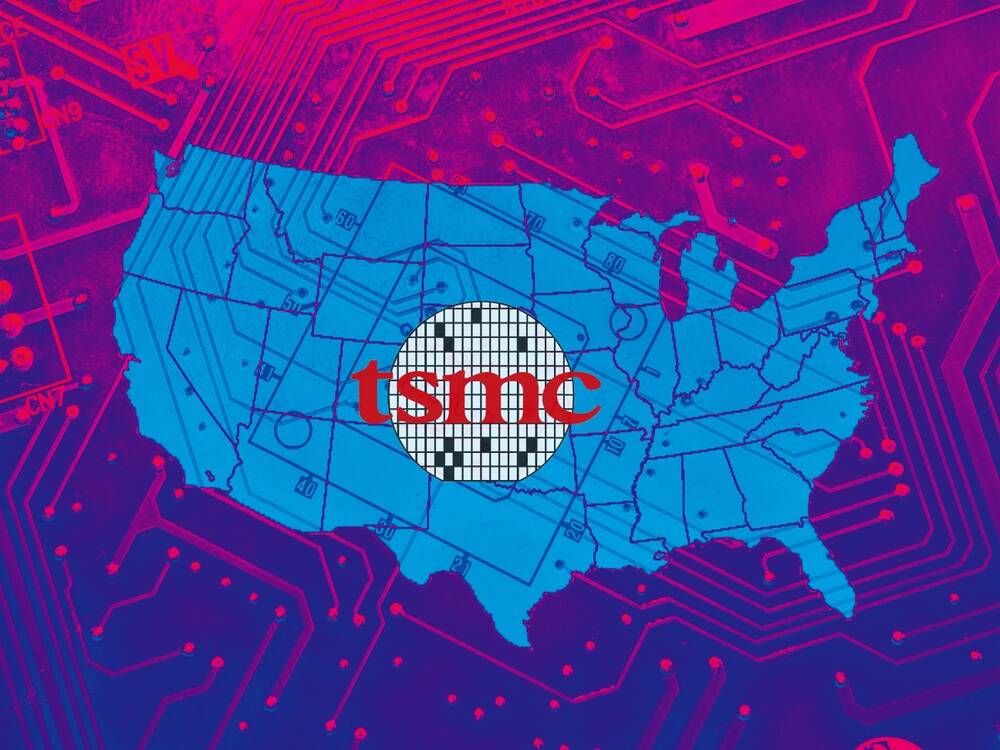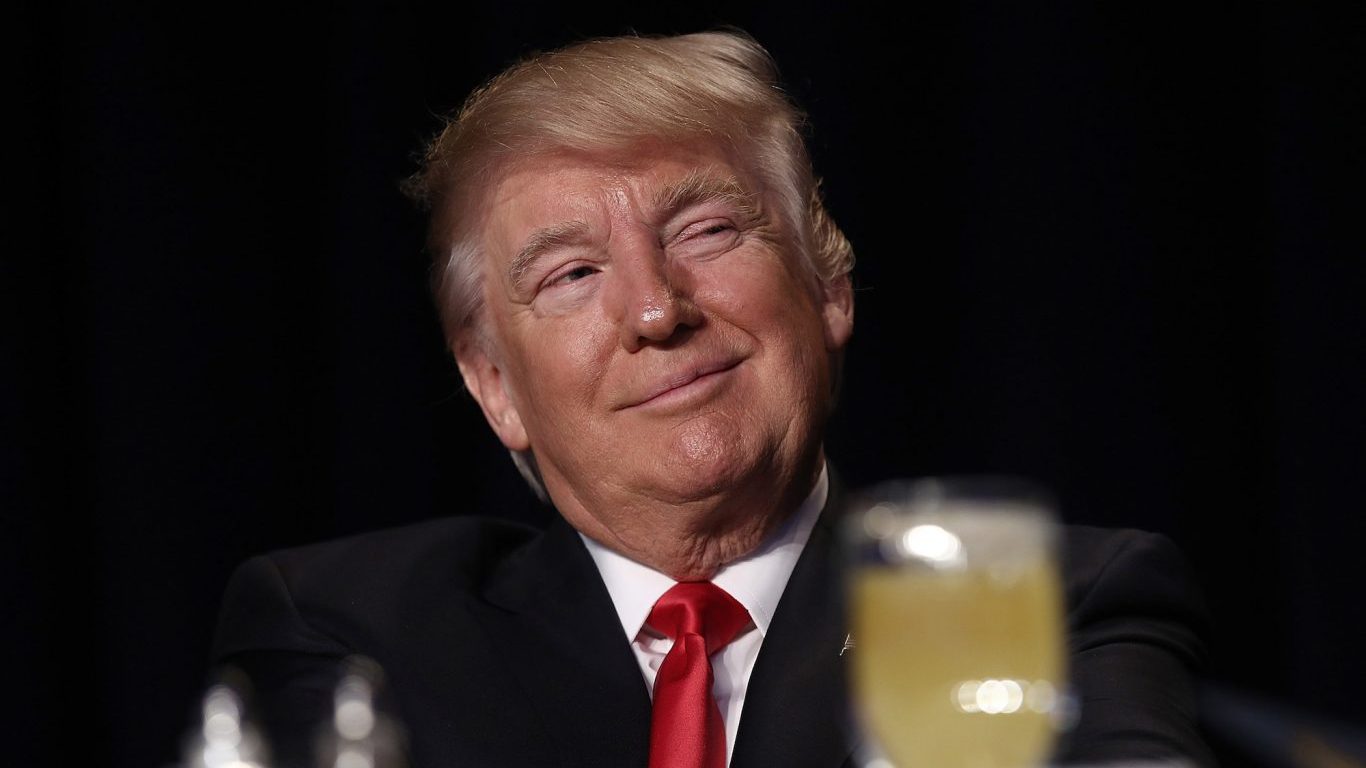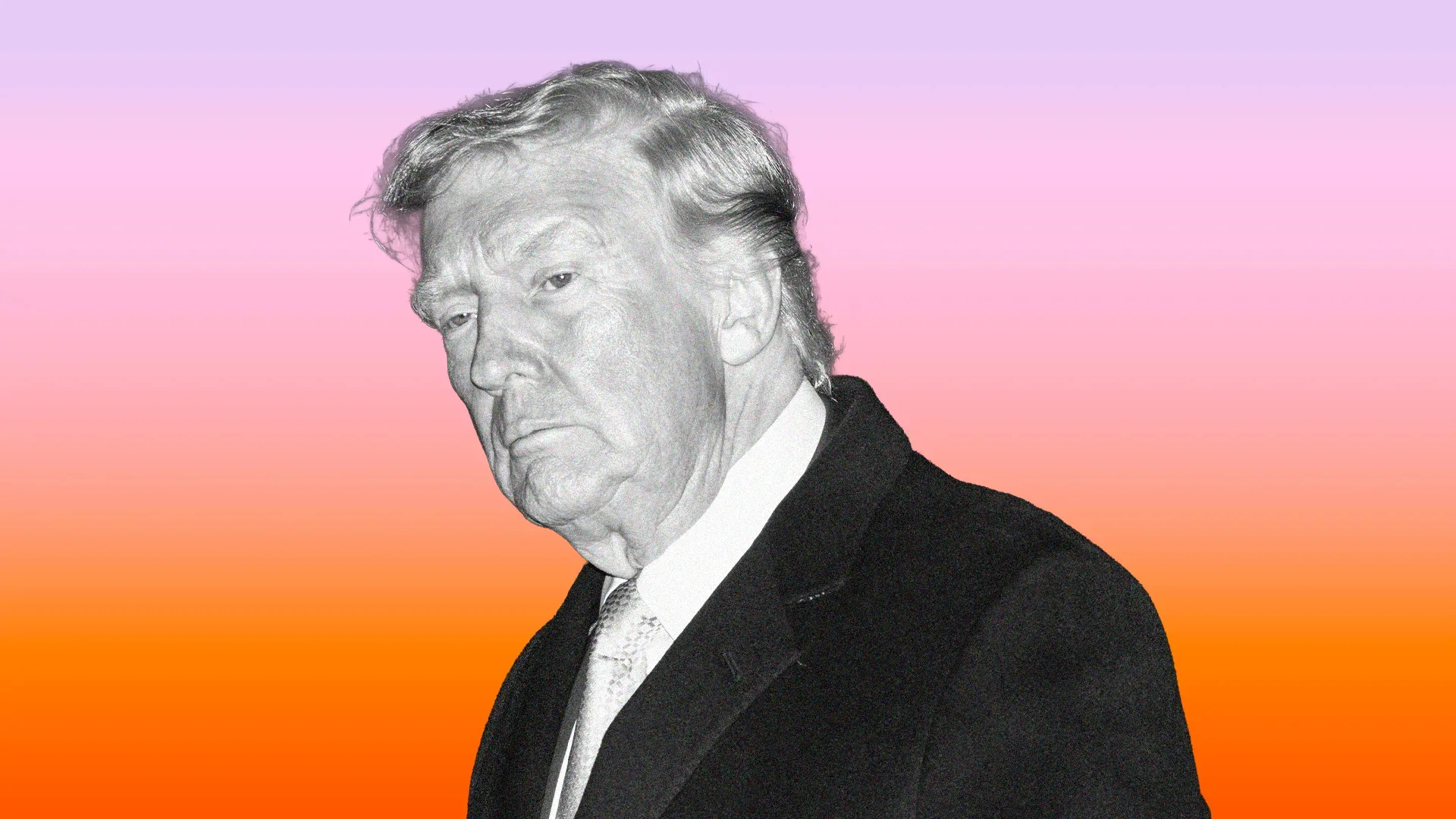#semiconductors
#semiconductors
[ follow ]
#nvidia #ai #ai-infrastructure #china #export-controls #artificial-intelligence #tariffs #ai-chips #tsmc #data-centers
from24/7 Wall St.
18 hours agoGoldman Sachs Is Raising Price Targets 10%+ on 4 Blue Chip Dividend Stocks
Founded in 1869, Goldman Sachs is the world's second-largest investment bank by revenue and ranks 55th on the Fortune 500 list of the largest U.S. corporations by total revenue. The Wall Street white-glove giant offers financing, advisory services, risk distribution, and hedging for the firm's institutional and corporate clients. In addition, it provides advice, investing, and execution for institutions and individuals across public and private markets.
Business
from24/7 Wall St.
4 days agoAn Emerging Markets ETF Soared 50% Without Owning a Single Chinese Stock
Most emerging market ETFs are built around the same assumption: that China's economy and equity markets will drive returns for decades. Columbia EM Core ex-China ETF (NYSEARCA:XCEM) rejects that premise entirely. This fund excludes Chinese equities altogether, offering investors exposure to emerging markets without the geopolitical risk, currency volatility, and regulatory uncertainty that have defined Chinese markets in recent years.
Business
fromwww.mercurynews.com
5 days agoApplied Materials to pay $252.5 million to settle US probe
Applied Materials Inc. will pay $252.5 million to settle a US Commerce Department investigation into improper exports to China, ending a yearslong saga for the largest American supplier of chipmaking machinery. The agreement resolves allegations by the Commerce Department's Bureau of Industry and Security that certain shipments to China between November 2020 and July 2022 didn't comply with export regulations, the company said in a statement Wednesday.
Silicon Valley
Artificial intelligence
fromFast Company
1 week agoHere's how much Amazon, Microsoft, Meta, and Google will spend to develop more AI in 2026
Alphabet, Meta, Microsoft, and Amazon plan to spend roughly $650 billion on AI in 2026, funding data centers and semiconductors to secure long-term competitive advantage.
from24/7 Wall St.
2 weeks agoSanDisk and Western Digital are the Real AI Kings of 2026
As investors turned their back on software (notably, the seat-based software-as-a-service companies), they're turned towards hardware in a big-time way. You wouldn't know it by looking at those flat shares of Nvidia ( NASDAQ:NVDA), but the iShares Semiconductor ETF ( NASDAQ:SOXX) is up around 13% year to date, with few signs of slowing down. The winners within semis have been broad, but the undisputed kings of the 2026 semiconductor surge belongs to the memory and storage stocks.
Business
fromwww.aljazeera.com
2 weeks agoWhat is the US strategic minerals stockpile?
United States President Donald Trump has announced the launch of a strategic minerals stockpile. The stockpile, called Project Vault, was announced on Monday. It will combine $2bn of private capital with a $10bn loan from the US Export-Import Bank. list of 4 itemsend of list It is the latest move by the White House to invest in rare-earth minerals needed in the production of key goods, including semiconductor chips, smartphones and electric car batteries.
US politics
from24/7 Wall St.
2 weeks agoPay Attention: QQQE's Dividend Dropped By A Third While QQQ Paid 5 Times More
The Direxion NASDAQ-100 Equal Weighted Index Shares ( NASDAQ:QQQE) doesn't generate income the way traditional dividend ETFs do. With just $1.2 billion in assets and a 0.35% expense ratio, this fund tracks the NASDAQ-100 using equal weighting rather than market cap weighting. That structural difference means each of the 100 holdings gets roughly 1% of the portfolio instead of letting mega-caps dominate. The result is a growth-focused ETF where dividends are secondary.
Business
Business
fromFortune
2 weeks agoThe $600 billion wave of AI 'capex' growth boosting tech stocks is set to slow down this year or next, analysts warn | Fortune
Rising AI-driven capital expenditures by major tech firms are fueling tech stock gains and will significantly impact related industries and U.S. GDP growth.
fromFast Company
2 weeks agoChip firm ASML to slash 1,700 jobs and posts record profit for 2025 thanks to AI boom
"In the last months, many of our customers have shared a notably more positive assessment of the medium-term market situation, primarily based on more robust expectations of the sustainability of AI-related demand. This is reflected in a marked step-up in their medium-term capacity plans and in our record order intake," ASML President and Chief Executive Officer Christophe Fouquet said in a statement.
Business
from24/7 Wall St.
3 weeks agoLive Nasdaq Composite: Market Mettle Tested in Whipsaw Week
The markets are retreating today after a two-day rally in which technology stocks were out front. Today, tech is a drag, with stalwart chipmaker Intel ( Nasdaq: INTC) down by a double digit percentage as worries around chip demand resurface. All three of the major stock market averages are seeing red, including a fractional decline in the Nasdaq Composite. Nvidia ( Nasdaq: NVDA) is a rare gainer today, tacking on 1.6% and preventing the markets from further declines.
Business
from24/7 Wall St.
1 month agoStock Market Live January 16, 2026: S&P 500 (SPY) Nearing Record Highs
Live Coverage Updates appear automatically as they are published. Live Updates Most of the major indices are green again. The S&P 500 0.17%, as it nears record highs. The SPDR S&P 500 ETF ( SPY) is up about 0.14%. The Dow is down a fraction of a point, with the Nasdaq also up half a percent. The S&P 500 could easily hit 7,000 today, which is just a few points off.
Business
fromEngadget
1 month agoA $250 billion trade deal will see Taiwan bring more semiconductor production to the US
The US and Taiwan have signed an agreement that will see a multi-billion dollar investment into domestic development of semiconductors and related infrastructure. The US Department of Commerce announced that Taiwanese businesses will make an upfront investment of at least $250 billion into their US production capacity, while Taiwan's government will provide credit guarantees of at least another $250 billion in support of the semiconductor industry and supply chain in the US.
World news
from24/7 Wall St.
1 month agoBroadcom (NASDAQ: AVGO) Stock Price Prediction and Forecast 2026-2030 (Jan 2026)
Despite the past year's stock market volatility, the explosive demand for semiconductors and microchips that has grabbed news headlines and led the market higher over the past few years remains. As the drive toward integrating artificial intelligence (AI) into our everyday lives progresses, a handful of mega-cap companies are capable of meeting that demand. While Nvidia Corp. ( NASDAQ: NVDA) may get the lion's share of attention, companies like Broadcom Inc. ( NASDAQ: AVGO) will also be playing a central role in supply.
Business
fromTheregister
1 month agoThe world is one bad decision away from a silicon ice age
For a world economy driven by consumerism, it's become markedly unkind to consumers. This goes double - literally - for digital tech, where memory prices have increased by between 100 and 250 percent in six months. If you think GPUs are pricey now, you'll only have to wait six weeks, during which both AMD and Nvidia are expected to demonstrate supply-side economics much as the Road Runner demonstrated gravity to Wile E Coyote.
World news
from24/7 Wall St.
1 month ago5 AI Stocks That Could Replicate NVIDIA's Decade of Dominance
NVIDIA ( NASDAQ:NVDA) has delivered a 23,000% return over the past decade has become the benchmark every tech investor measures against. The company created the infrastructure that made modern AI possible. Now the question: which company pulls off the next NVIDIA-like run? We analyzed 15 AI-adjacent stocks across semiconductors, software, and quantum computing to find the five with the clearest path to impressive future returns thanks to massive growth in the decade ahead. Here's what separated the contenders from the pretenders.
Artificial intelligence
from24/7 Wall St.
1 month agoMicron Technology Stock Can Do No Wrong Right Now | MU Stock
The enthusiasm comes as Micron delivered remarkable Q1 FY2026 results, with revenue climbing 56.7% year-over-year to $13.64 billion and net income soaring 175.4% to $5.24 billion. The company's 38.4% net profit margin is stunning. Operating cashflow reached $8.41 billion in the quarter. Attention intensified following comments from Nvidia's CEO about AI storage demand, which sent memory chip stocks surging across the board.
Business
from24/7 Wall St.
1 month agoIf The US Beats China in EVs This ETF Is Going To Soar | DRIV
The biggest macro factor for DRIV isn't consumer demand or battery costs. It's trade policy: tariffs and industrial incentives that determine where EVs get built and sold. DRIV holds $340 million in assets split between US tech giants and global automakers. When tariff threats emerge or federal EV tax credits shift, the fund's diverse holdings react differently. Watch for announcements from the Office of the US Trade Representative on Chinese EV and battery component tariffs. These typically surface quarterly or around major trade negotiations.
Business
from24/7 Wall St.
1 month agoRoundhill's AI ETF Rips 45% Higher As The AI Buildout Continues In 2026
The Roundhill Generative AI & Technology ETF ( NYSEARCA:CHAT) soared just over 45% in 2025, outpacing the S&P 500's 17% gain and the Nasdaq-100's 21% advance. The fund's 2026 performance trajectory depends on hyperscaler spending on AI infrastructure and the fund's concentrated exposure to companies building that infrastructure. Hyperscaler Capital Spending Is the Engine The biggest macro factor affecting CHAT's performance is capital expenditure by the world's largest cloud providers.
Business
from24/7 Wall St.
1 month agoIf I Could Go Back In a Time Machine, I Would Have Bought These 2 Stocks to Start 2025. They're Still Stocks I'd Buy Now.
Among the winners, there are a number of stocks I think can continue to outperform in the year ahead. In this piece, I thought I'd dive into two companies that have blown away the market's return this year, and been key drivers of this performance. These are companies I think can continue to outperform in 2026, and may still be buying opportunities after their impressive 2025.
Business
Science
fromwww.scientificamerican.com
1 month agoThe Push to Make Semiconductors in Space Just Took a Serious Leap Forward
A U.K. startup achieved uncrewed plasma creation aboard a commercial satellite, demonstrating machine-only semiconductor crystal manufacturing in microgravity to reduce space manufacturing costs.
fromFortune
1 month agoWhy Singapore is the only Southeast Asian country in Pax Silica, the U.S.'s new AI 'inner circle' | Fortune
With its new Pax Silica Declaration, Washington has picked its most trusted partners in the AI sector: An array of close U.S. allies, including Australia, the U.K., and Israel. Yet despite deepening trade relations between the U.S. and ASEAN nations like Thailand, Malaysia and Vietnam, Singapore remains the agreement's only Southeast Asian signatory. That decision comes even as ASEAN nations like Malaysia are investing in their own AI industries, like semiconductors and data centers.
Artificial intelligence
from24/7 Wall St.
1 month agoOpinion: AMD Will Be the Semi Play to Beat in 2026
It may have been a wilder ride for the semiconductor stocks and the broader AI trade in 2025. But for the many brave investors who stayed the course, it's been a rewarding year, with the VanEck Semiconductor ETF ( NASDAQ:SMH), my favorite "thermometer" to gauge the heat of the semiconductor stocks, gaining close to 50% on the year. Undoubtedly, with Dr. Michael Burry of The Big Short fame, likely sticking with his bearish bets (and views) of AI for the new year,
Tech industry
from24/7 Wall St.
1 month agoARTY Is Probably The Single Best Way To Bet On AI Stocks Without Have To Pick Single Winners
The hardest part about investing in artificial intelligence isn't believing in the technology-it's deciding which companies will actually profit from it. Will chip makers dominate? Cloud providers? Software platforms? Infrastructure builders? The answer is probably all of them, which is why iShares Future AI & Tech ETF (NYSEARCA:ARTY) has become popular for investors wanting broad AI exposure without concentrated bets.
Artificial intelligence
World news
fromwww.aljazeera.com
2 months agoCan India catch up with the US, Taiwan and China in the global chip race?
India is positioning itself as an additional global semiconductor manufacturing hub through subsidies, foundry construction, and partnerships, but still faces investment and technology gaps.
from24/7 Wall St.
2 months agoSOXL's $13.6 Billion Fund Faces Rebalancing Drag as Memory Cycle Enters Critical Phase
Leveraged ETFs demand a different monitoring framework than buy-and-hold funds, and SOXL's 3x daily exposure to semiconductors makes the distinction especially sharp. With $13.6 billion in assets and an extremely high portfolio turnover rate driven by daily rebalancing, this fund combines sector momentum and structural decay. As 2026 approaches, investors need to separate broad semiconductor trends from the mechanics that make leveraged products behave differently than their underlying holdings.
Business
[ Load more ]



